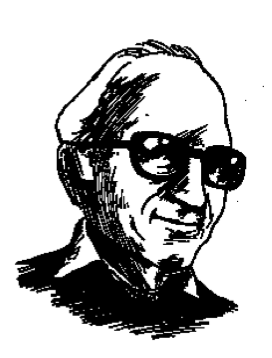Nicholas Mosley likes the language of science. “‘Hopeful Monsters,’” he tells us in his autobiography, “was a term used by biologists in the 1940s to describe mutations that were on the edge of going one way or the other—either to extinction or, if some change in the environment that suited them happened to coincide, to the establishing of a new strand of life.” Mosley used the term as the title of his most well regarded novel. Hopeful Monsters (1990) is laced with references to the uncertainty principle and to the building of the first atomic bomb. Its characters are physicists, biologists, psychoanalysts, and philosophers of science and language, and are often shown exploring in their conversations the nexus where religious belief and evolutionary theory meet.
Mosley’s Catastrophe Practice series of novels, which culminates in Hopeful Monsters, owes its title to catastrophe theory, a branch of chaos theory that explains unexpected, decisive (catastrophic) change in physics and biology. In the introduction to the series Mosley suggests that it might be possible for the human race to practice for such “sudden jumps” in evolution, to “prepare the ground” for the growth necessary to survive catastrophe.
The 1965 novel Accident is the sudden jump in Mosley’s writing—the mutation that established for Mosley’s novels a new strand of life. Until Accident’s publication Mosley was known as the author of four fairly conventional novels,1 in which one encounters a portentous, at times breathless style (“Sally was welcomed at one of the tables and the people all stood up for her and they were bright and laughing and I was introduced to them by their Christian names and they kept standing up and sitting down until a chair was found for me”), which Mosley attributes to Henry James and Proust and Faulkner and which comes off not unlike L. P. Hartley’s; as an English aristocrat whose maternal grandfather, George Curzon, had been the viceroy of India; and perhaps most notably, and unfortunately, as the son of Oswald Mosley, founder and leader (until his imprisonment at the outbreak of World War II) of the British Union of Fascists. Oswald Mosley and his second wife, Diana Mitford, were married in 1936 in Berlin, at Joseph Goebbel’s house. Hitler attended the wedding.2 When Nicholas Mosley was preparing to publish his first novel, in the late 1940s, he was asked if he planned to publish under his own (his father’s) name. Mosley had fought in the war (in the British army), and when he explained that he had never had a problem with his name while a soldier, he was told, “The literary world is not...
You have reached your article limit
Sign up for a digital subscription and continue reading all new issues, plus our entire archives, for just $1.50/month.
Already a subscriber? Sign in





